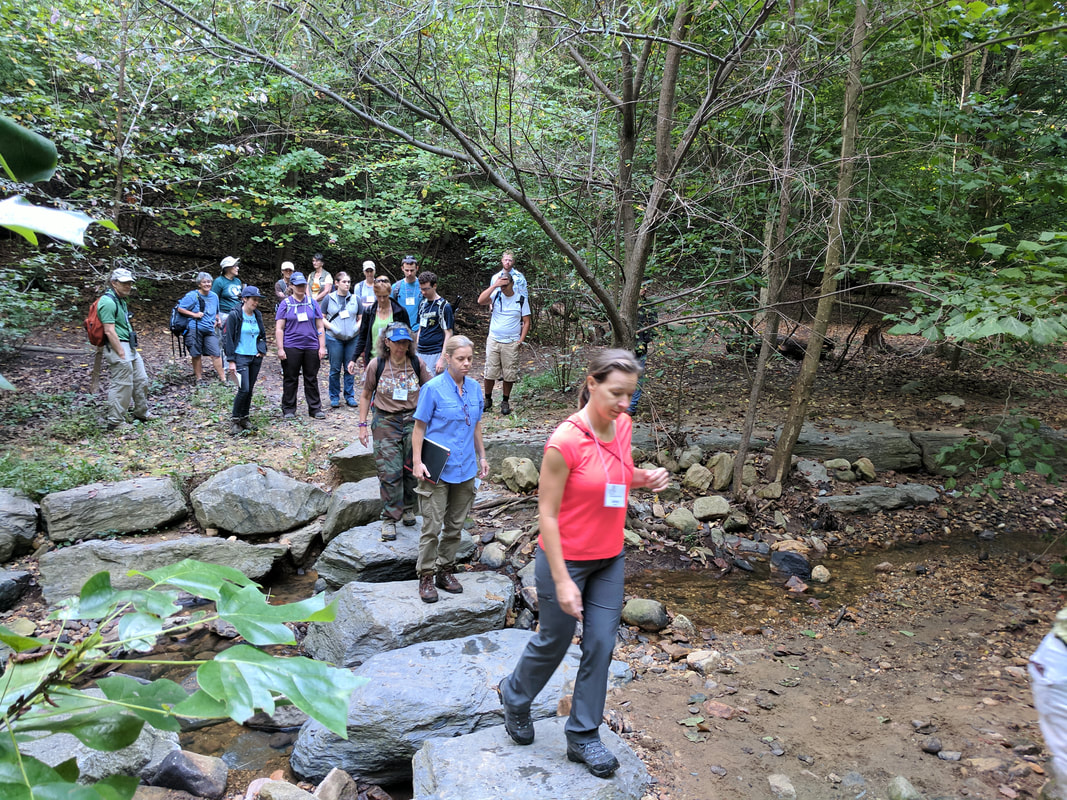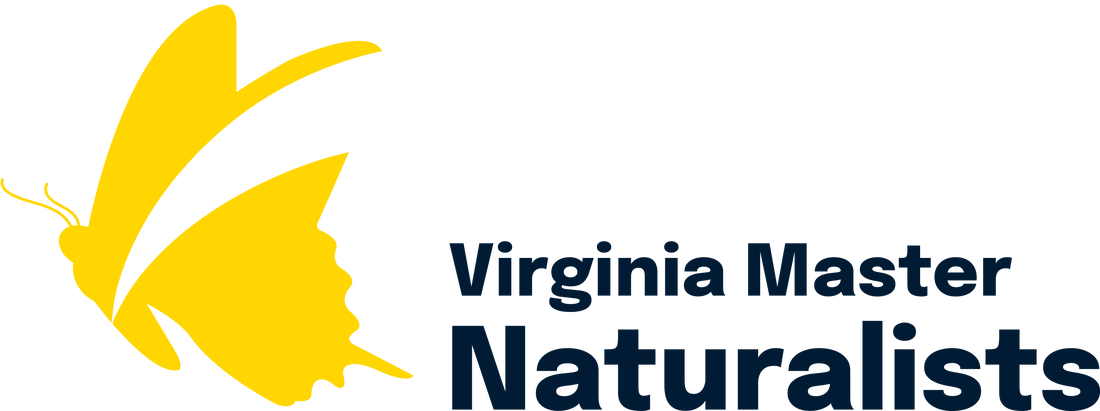We have been busy this January compiling the annual reports from our chapters. We're still digging into the stories of the impacts they have made on natural resource conservation and in their communities, but here we provide some of the basic program statistics for 2017.
In 2017, 1,845 volunteers reported nearly 156,000 hours of service, nearly 28,000 hours of continuing education, and more than 127,000 face-to-face exchanges of educational information about natural resources. The volunteers reported stewardship work at 323 sites across Virginia, including local, state, and national parks, local and state natural areas, trails, schoolyards, and more. Their service in 2017 is valued at $4.2 million, based on the 2016 value of a volunteer hour in Virginia as calculated by IndependentSector.org (2017 value is not yet published.)
Watch the spring issue of our quarterly newsletter and our Facebook page, where we will share some specific stories of outcomes and impacts of this service as we dig into those stories!
Thank you to all the volunteers who contributed, either through reporting their service, or by submitting their chapters' annual reports so that we can learn about the great work that you do!
In 2017, 1,845 volunteers reported nearly 156,000 hours of service, nearly 28,000 hours of continuing education, and more than 127,000 face-to-face exchanges of educational information about natural resources. The volunteers reported stewardship work at 323 sites across Virginia, including local, state, and national parks, local and state natural areas, trails, schoolyards, and more. Their service in 2017 is valued at $4.2 million, based on the 2016 value of a volunteer hour in Virginia as calculated by IndependentSector.org (2017 value is not yet published.)
Watch the spring issue of our quarterly newsletter and our Facebook page, where we will share some specific stories of outcomes and impacts of this service as we dig into those stories!
Thank you to all the volunteers who contributed, either through reporting their service, or by submitting their chapters' annual reports so that we can learn about the great work that you do!
2015 |
2016 |
2017 |
|
New Basic Training Graduates |
425 |
382 |
415 |
VMN Members |
2,790 |
2,879 |
3,039 |
Active Volunteers (reported service that year) |
1,679 |
1,743 |
1,845 |
Certified Virginia Master Naturalists |
1,078 |
1,206 |
1,256 |
Continuing Education Hours |
21,831 |
24,190 |
27,851 |
Service Hours: Education |
27.934 |
35,432 |
38,843 |
Service Hours: Citizen Science |
35,751 |
43,517 |
52,420 |
Service Hours: Stewardship |
26,532 |
29,852 |
36,516 |
Service Hours: Chapter Administration |
20,684 |
25,303 |
28,214 |
Total Service Hours |
120,328 |
145,996 |
155,992 |
Monetary Value of Service |
$3.14 million |
$3.94 million |
$4.21 million |
Sites |
198 |
323 |
364 |



 RSS Feed
RSS Feed